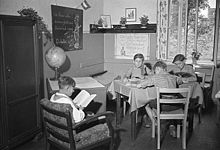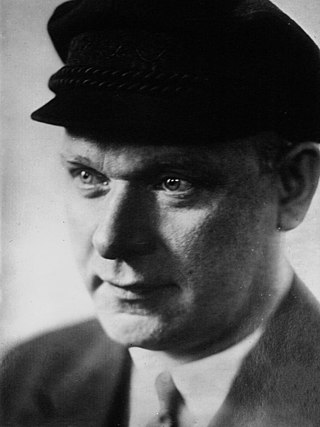
Ernst Johannes Fritz Thälmann was a German communist politician and leader of the Communist Party of Germany (KPD) from 1925 to 1933.
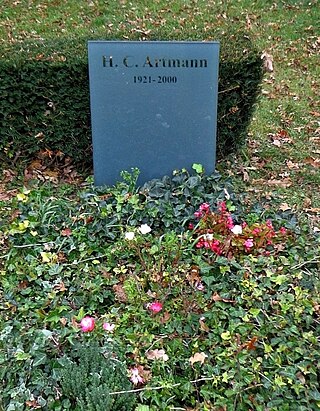
Hans Carl Artmann, also known as Ib Hansen, was an Austrian poet and writer, most popular for his early poems written in Viennese, which however, never after were to be the focus of his oeuvre.

Karl Wolf Biermann is a German singer-songwriter, poet, and former East German dissident. He is perhaps best known for the 1968 song "Ermutigung" and his expatriation from East Germany in 1976.

Friedrich Wilhelm Ernst Busch was a German singer and actor.

Ernst Fuchs was an Austrian painter, draftsman, printmaker, sculptor, architect, stage designer, composer, poet, and one of the founders of the Vienna School of Fantastic Realism. In 1972, he acquired the derelict Otto Wagner Villa in Hütteldorf, which he restored and transformed. The villa was inaugurated as the Ernst Fuchs Museum in 1988.
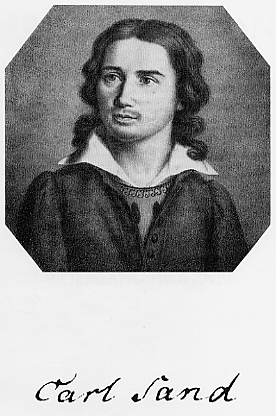
Karl Ludwig Sand was a German university student and member of a liberal Burschenschaft. He was executed in 1820 for the murder of the conservative dramatist August von Kotzebue the previous year in Mannheim. As a result of his execution, Sand became a martyr in the eyes of many German nationalists seeking the creation of a united German national state.

Beate Auguste Klarsfeld is a Franco-German journalist and Nazi hunter who, along with her French husband, Serge, became famous for their investigation and documentation of numerous Nazi war criminals, including Kurt Lischka, Alois Brunner, Klaus Barbie, Ernst Ehlers and Kurt Asche.
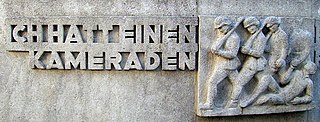
"Der gute Kamerad", also known by its opening line as "Ich hatt' einen Kameraden", is a traditional German anti-war song and soldiers' lament. The lyrics were written by German romantic poet Ludwig Uhland in 1809. Its immediate inspiration was the deployment of Badener troops against the Tyrolean Rebellion. In 1825, the Lieder composer Friedrich Silcher set it to music, based on the tune of a Swiss folk song, in honor of those who fell during the more recent Wars of Liberation against the French Imperial Army of Napoleon Bonaparte.

Wenzel Jaksch was a Sudeten German Social Democrat politician and the president of the Federation of Expellees in 1964 to 1966.
Werner Spies is a German art historian, journalist and exhibition organizer. From 1997 to 2000, he was a director of the Centre Georges Pompidou in Paris. Klaus Albrecht Schröder, director of the Albertina in Vienna, has called Spies "one of the most influential art historians of the 20th century."
The Bund: Gemeinschaft für ein sozialistisches Leben was a German Socialist organization founded in 1924 by Artur Jacobs. His wife, Dore Jacobs, created within this "Bund" a method of physical education which became a mode of resistance under Nazism and is still taught in Germany, in the same place in which it originated.

Ernst Wilhelm Borchert, or just Wilhelm Borchert, was a German actor. He was also a voice actor for audio books and films.
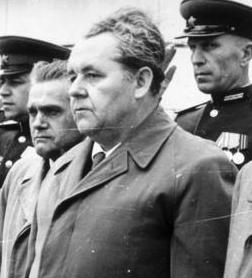
Paul Merker was an activist member of Germany's Communist Party who later became a politician and a top official of East Germany's ruling SED .
Bruno Kaiser was a Marxist scholar of German studies who became a journalist and, during the Nazi period, a resistance activist. In his later years he became, in addition, a distinguished librarian.
Jeff Burrell is an American-born actor and voice-over artist based in Germany. He has worked under Roman Polanski and Lars von Trier.

"Freiheit", also known as "Spaniens Himmel" or "Die Thälmann-Kolonne", is a song written in 1936 by Gudrun Kabisch and Paul Dessau, German anti-fascists. The song was written for the International Brigades but later became a popular standard in Germany and in American communist and folk music communities. The title translates as "Freedom" in English.

The Bundespressekonferenz (BPK) is a union of journalists that report exclusively for German media, and who primarily report from Berlin and Bonn. Following the model of the journalists of the Weimar Republic, the association invites representatives of the German government, as well as political parties, associations and individuals of national political, economic, and social interest to press conferences. It is financed solely through membership fees. Membership of the Bundespressekonferenz is limited exclusively to German journalists that report from either Bonn or Berlin. In December 2020 It has 900 parliamentary correspondents. The most important committee is the general assembly, which appoints the 8 members of the board, who take turns leading press conferences.
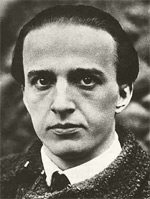
Ernst Friedrich was a German anarcho-pacifist.

Harry Goldschmidt was a Swiss musicologist.

As part of an anti-communist campaign in Austria against the author Bertolt Brecht, his work was boycotted for ten years. Between 1953 and 1963, no established Viennese theater performed his works. The initiators were the publicists Hans Weigel and Friedrich Torberg as well as the Burgtheater director Ernst Haeussermann.

